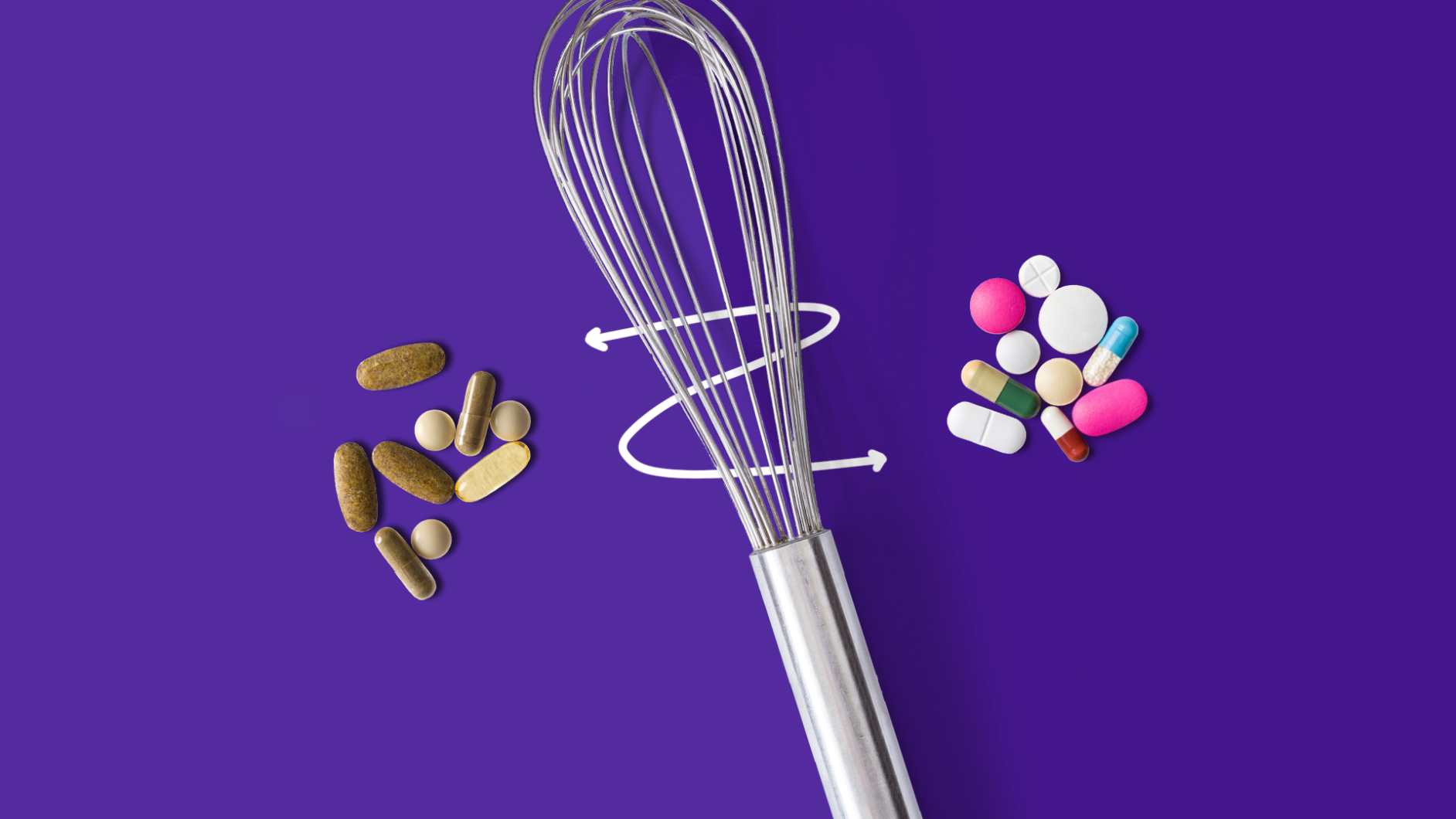Some medications come labeled “take with food.” You may have heard that you shouldn’t drink grapefruit juice with certain pills. But did you know there are a number of supplement interactions that can alter the efficacy or worsen side effects of your medication? Many people don’t, and that can lead to dangerous drug interactions.
Can supplements interact with medications?
Dietary supplements are growing in popularity and going nowhere fast. In fact, the dietary supplement market is expected to grow to a whopping $278 billion by the year 2024. It is estimated that nearly 68% of Americans use a dietary supplement and that 84% of Americans express confidence in the safety, quality, and effectiveness of the supplements that they take.
However, there are about 5,300 distinct dietary supplements, most of which have not been studied systematically. The studies that do exist have found that a number of supplements may affect the way certain enzymes in the body metabolize drugs. They may inhibit the enzymes’ ability to break down a drug, causing medication to build up to potentially toxic levels. Others may increase the rate at which a drug is broken down, making it less effective. More than half of patients with chronic disease or cancer use dietary supplements with prescription medications.
3 common supplement interactions
1. St. John’s wort
Intended for relieving depression and fatigue, it may reduce the effectiveness of contraceptives, HIV/AIDS drugs, and anti-rejection drugs. Combining St John’s wort with OTC cough medicines or antidepressants could cause serotonin syndrome, which is a dangerous, potentially life-threatening condition resulting from the buildup of too much serotonin that can cause rapid blood pressure changes. St. John’s wort can also reduce the levels of anti-rejection drugs in organ transplant patients.
RELATED: Everything you should know about St. John’s wort
2. The four G’s (ginger, garlic, ginseng, and ginkgo)
These four popular supplements can interact with a variety of medications, such as increasing the risk of bleeding in patients on blood thinners, including daily aspirin. If patients are undergoing surgery, doctors advise stopping the use of the supplements at least a week or two before.
3. Magnesium
Supposedly aiding migraines, heart disease, and fatigue, magnesium supplements may reduce the absorption of antibiotics and increase the absorption of blood thinners.
How to avoid drug and supplement interactions
Speak with your healthcare provider or pharmacist. When starting a new prescription or supplement, it is best to do some research on it. Ask your doctor if there are any dietary concerns with your treatment. The National Center for Complementary and Integrative Health (NCCIH, formerly NCCAM) is also a good resource for many commonly used supplements.
Know your diet well. Knowing what foods you eat will help you to determine what supplements could push you over the recommended daily amount.
Read medication labels. Medication labels will tell you what foods or beverages to avoid, such as alcohol. Medications generally have warning labels that you should be sure to notice and obey.
Keep your doctor up-to-date. Make sure you tell your doctor or pharmacist before starting any new supplement or drastically changing your diet. Make sure you add the new supplements to your medication list in your medical record.
RELATED: 5 things you shouldn’t keep from your doctor
Be careful where you buy supplements. Generally, it is safe to buy medications in the U.S., from a trusted source, such as your local pharmacy. Because dietary supplements are categorized under the umbrella of “food,” The FDA (United States Food and Drug Administration) does not review them for safety and efficacy before they are marketed.
If you purchase supplements online, the FDA warns that they could be fraudulent or harmful. Eating a healthy diet and taking supplements can be a key component to a healthy lifestyle—and should not be a hindrance to your medications if you prepare and communicate properly.











